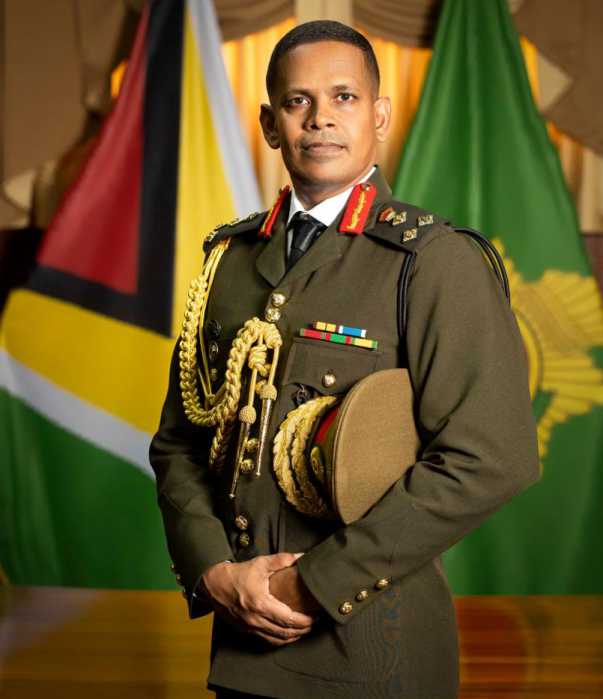University of the West Indies Lecturer, Tennyson Joseph, has fired a scorching attack on Caribbean heads of government who supported a Latin American group’s denouncement of planned elections in Venezuela.
Contending that Venezuela is more democratic than CAROCOM members Jamaica, Guyana, Barbados and St. Lucia, and the Bahamas, the head of Department of Government, Sociology and Social Work, Cave Hill Campus, University of the West Indies lambasted these territories for siding with the Lima Group, even calling Jamaican Prime Minister Andrew Holness a ‘lapdog’ and the St. Lucia leader a ‘Blockhead.’
Established last year in Peru with the declared aim of working out a peaceful exit of the crisis in Venezuela, the Lima Group comprises 17 Latin American and Caribbean nations.
The grouping claimed that the election, originally set for April 22, was not free and fair because Venezuela has political prisoners, the opposition continued to boycott the poll, and Venezuelans abroad were not allowed to vote.
Guyana and St. Lucia, in January signed onto a Lima Group accord condemning the planned election.
Barbados, Jamaica, and The Bahamas did not sign the January declaration, but are listed as supporters.
Venezuelan authorities pushed back the poll to May 20, and invited observers including the United Nations, but opposition activists are continuing their boycott.
Joseph chose a public function observing the fifth death anniversary of the Venezuela’s iconic leader, Hugo Chavez, to tear into these CARICOM countries for daring to side with external forces in attacking that country’s democracy.
“I want you to as a group to declare and denounce our own governments,” he said to those gathered in the annexe to the Venezuelan Embassy in Barbados to observe Chavez’s passing. “We as Caribbean people, we have to call out Jamaica, St. Lucia, Guyana, the Bahamas, Barbados … No Caribbean leader that I know can speak of democracy in Venezuela,” he asserted.
Against the backdrop of Grenada and Antigua and Barbuda having set a date for elections, and with that for Barbados constitutionally due by June, Joseph condemned regional leaders generally for being supportive of ‘imperialists’ and said, “the lesson that we have to take in the coming elections in our countries is that we are going to vote against governments that are supporting imperialism in Venezuela.”
The outspoken, St. Lucia-born, lecturer had special words for some of the countries in the Lima Group.
He spoke of Guyana’s history of questionable elections practices, and insisted that the dispute over Venezuela’s claim to a part of Guyana could be solved elsewhere than in the Lima Group.
“A border dispute can be solved at international for a… [it] is not a reason for Guyana to put itself among a group of countries that can determine what happens in the internal affairs of Venezuela.
“We have to denounce Guyana for doing the work of imperialism.”
Rejecting claims of no democracy in Venezuela, Joseph cited a recent change of that country’s constitution through involvement of a cross-section of Venezuelans, and declared, “Venezuela is more democratic than Barbados.”
“When last did you had a national constituent assembly in Barbados to ask people to look at your constitution to review it and make it more powerful?” he asked.
He said, “Jamaica has one of the highest rates of illiteracy in the world; one of the highest rates of murder in the world. So, who is Holness to be seeking judgement on a democratic state like Venezuela, and to join a group of countries to interfere in its internal affairs on the basis that ‘we can talk about democracy?’”
Joseph spoke of US Secretary of State Rex Tillerson visiting Jamaica in February, and said, “the same week after Trump called all of us shithole countries the prime minister of Jamaica [hosted] a secretary of state whose president has just insulted him and his people, and to do like a lapdog to do his bidding.”
He noted that following hurricane devastation of many islands last year Venezuela was among the first countries to send assistance.
He said, “the prime minister of St. Lucia, the blockhead that he is went on the radio and said that we should diversify our sources of assistance… He was so angry that Venezuela had the first plane on the ground the best he can say is he is asking Caribbean governments to diversify their sources of aid because we are depending too much on one country.”


























